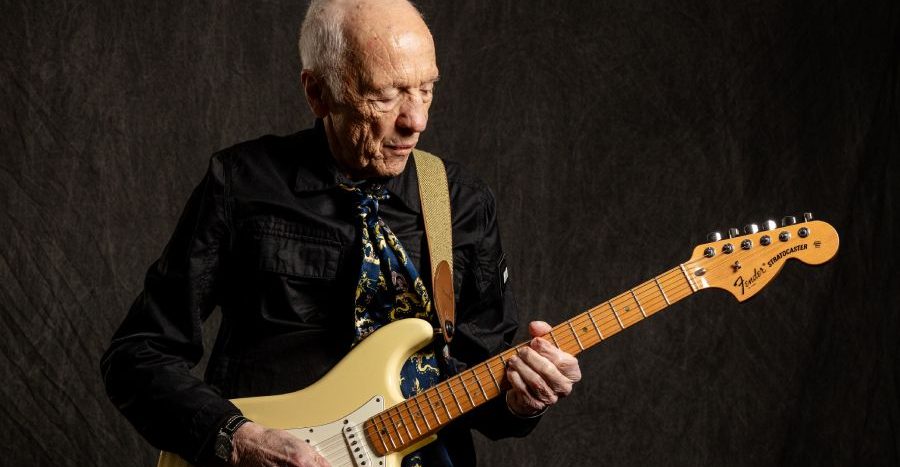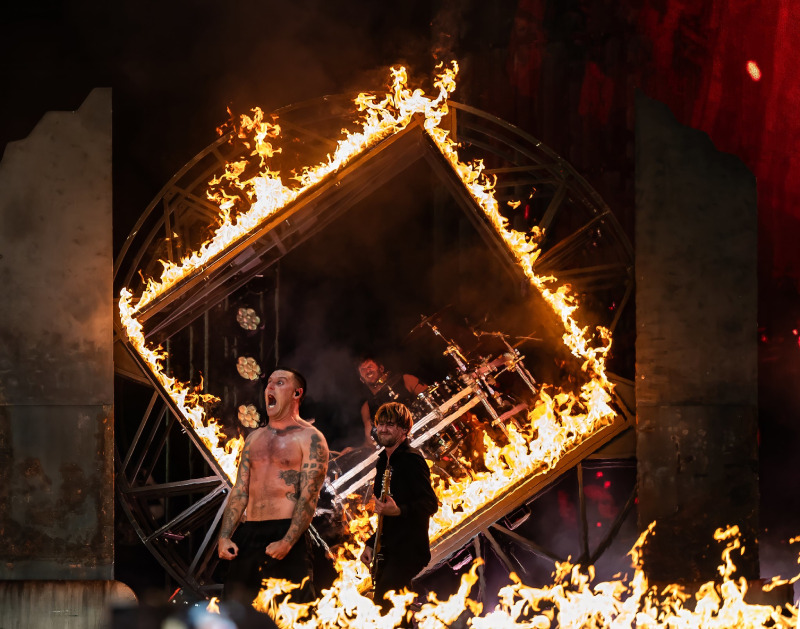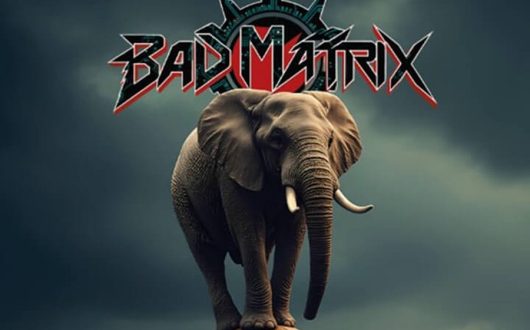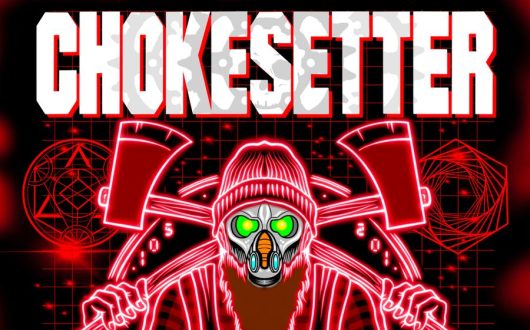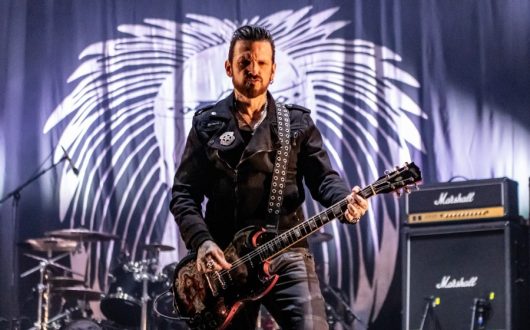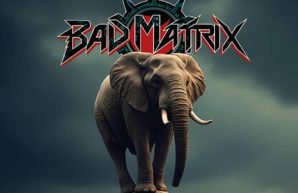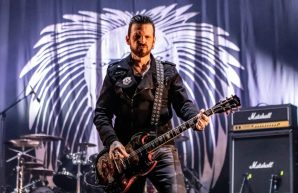Interview by Mark Lacey
Photo credit: Rob Blackham
Robin Trower is among the industry’s greatest musical innovators, with musicians including Joe Satriani and Robert Fripp citing him amongst their formative influencers. Robin’s career and musical legacy is extensive, dating back to his earliest performances in the 60s with Gary Booker; first in the Paramounts, and then later in Procol Harum. However, it wasn’t until his solo career began in 1973, and his transition from Les Paul to the Stratocaster that he found his true musical voice. His landmark album ‘Bridge of Sighs’ released just a year later, has remained his calling card, and sounds as powerfully absorbing today as it did over 50 years ago.
When Robin took a pause from touring last year, following an undisclosed health issue, some questioned whether he might at last take a well-earned retirement. However, he is back in the finest form of recent years with a new album, and tours of the UK and US in 2025.
MGM: You’ve been a professional musician now for over 60 years. What keeps you going?
Robin: Well, the love of it, really. It’s just the love of playing guitar, the love of creating music, and the love of playing live. It all centred around that love of playing the guitar, basically.
MGM: You started professionally at a really early age, didn’t you? I think you were only 17 when you started out with the Paramounts?
Robin: I think it was 17 or 18. It was around that time. Yeah, definitely.
MGM: Back in the early ’60s when you first started playing, there can’t have been many guitar players for you to turn to for inspiration. Who initially pushed you in that direction?
Robin: Initially, Scotty Moore with Elvis was the guitar player that I heard, and made me want to play guitar myself. So, he’s the initial starting point. And then I think that the biggest influence in the early ’60s was BB King. And then Albert King and Jimi Hendrix came along a little bit later. But they’re all the main influences.
MGM: You’ve been playing more than 60 years, and through that time you initially worked with Gary Booker in the Paramounts and Procol Harum, and then you went on to do a project with Frankie Miller and Clive Bunker in the early ’70s. And since then, you’ve been doing your own solo work for the last 50 years. Interspersed with all those you’ve recorded with the likes of Jack Bruce and Brian Ferry and many others. When you reflect back on your career, what period do you view as your happiest and being at your most creative?
Robin: Well, I think my most creative period has been the last five years, really. And that was brought about maybe 10 years ago when my previous manager, Derek Sutton, came up with the idea of us having our own label. That gave me complete freedom to do what I wanted, musically. I think that kickstarted a whole new era of creativity for me. It’s having the freedom to compose the music that you want to, and not having to think about what’s commercial at the moment. Not having to take any notice of trends or anything like that. Just do what comes naturally. That opened the floodgates.
MGM: Is that pressure to conform to commerciality something that you see musicians wrestle with?
Robin: I don’t think it’s a matter of putting out the same music again and again. I think when you sign to a very big label, they’re only interested in trends. They’re not interested in what you’ve done in the past. They’re interested in what is selling right now. And that can have an effect if you’re with a big label. All they’re interested in is sales. But, that’s the difference between having your own label and being on a major label.
MGM: Your latest album, ‘Come and Find Me’, has just been released. What did you want that album to say?
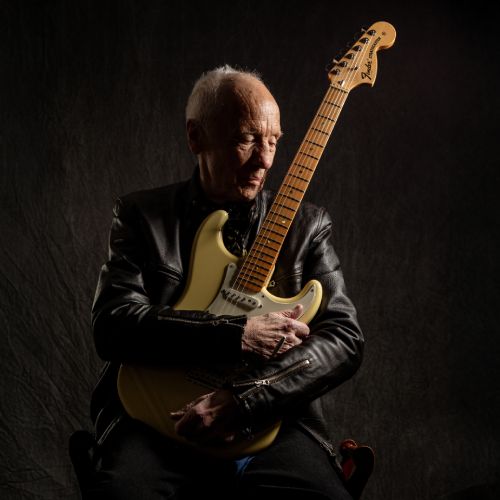
Robin: Well, I think it shows quite clearly where I’m at musically, more to the point where I was at when I was working on it. What I set out to do, was to come up with musical ideas that are interesting; interesting to me and hopefully interesting to other people. And to make it as funky and as soulful as I possibly can.
MGM: There’s a lot of heavy blues influences in there. Obviously, it’s very distinctly you and distinctly your sound, but you can hear influences of some of the other musicians that helped shape this genre. There’s elements of Hendrix within this album, and the final song on the album, ‘The Time Stood Still’ has comparisons to early Thin Lizzy. Would you agree with those?
Robin: Well, obviously, Hendrix has been a very big influence, especially in the ’60s. Elements of that do come through in some of my writing, I think. I have no idea about Thin Lizzy. I don’t really know any of their material.
MGM: You’ve written and recorded so many albums throughout your career. It must be very close to 50 albums, if not more, once you start including the compilations. How do you manage to keep this interesting for you and interesting for your listener after so long?
Robin: Well, I think the thing is, I feel like it’s a great blessing to have creativity, and that’s what makes the things interesting. I think the fact that you have creativity, in other words, you can come up with fresh ideas. I think that’s the key. And it’s great, no doubt about it. It’s what keeps me in the game.
MGM: I believe you started out life as a South East London boy, near Catford. How have your surroundings influenced your writing, transitioning from the bustle of London to the tranquillity of the Hampshire countryside?
Robin: I was born in Catford, but I lived most of my life, early life in Southend on Sea. I was in a band with Gary (Brooker) called the Paramounts, and he was from Southend originally. I think all the outpouring of music is from within. I don’t think the surroundings influence that. I think that’s just something you’re born with. You’re born with music in you. I believe everybody is, but just some are able to turn it into something a bit more substantial.
MGM: On this album is you’ve managed to retain a real vintage sound, presumably down to the choice of instruments that you play. A lot of modern music is so heavily produced these days, that it loses a lot of its character. There’s a huge amount of character on this album, and will remind fans of those authentic sounds from the ’60s and ’70s. How are you able to conjure the sounds that you do from these instruments?
Robin: A lot is to do with the actual sound of the guitar. It is the equipment I use. There’s no doubt about that. I play what’s called a signature model Strat, which is a Stratocaster that myself and the custom shop at Fender put together. I’ve been playing those for several years now. Also, I’ve always used an overdrive unit made by Fulltone, and I use Marshall Amps. That’s the basic ingredients, definitely.
MGM: One of the album’s highlights is the song, ‘Time Stood Still’, which conveys a huge amount of emotion throughout. What were you thinking when you wrote that song?
Robin: I think I was just thinking about being deeply in love with somebody, which I was with my late wife. I’m sure that comes into it. But also, you’re just trying to write a song that really works. You’ve got a piece of music that has an atmosphere about it, and you try and come up with a lyric that enhances that atmosphere. I think that’s the main thing.
MGM: Do you try and base your songs on real experiences or real people?
Robin: No, I don’t. A few of the lyrics are always semi-political about what’s going on in the world. But otherwise, I look at most of the lyrics as fiction. Just coming up with the story like you would as a writer.
MGM: Another highlight on the album is the song ‘Tangled Love’ which sees you playing alongside Jess Hayes. How did that collaboration come about?
Robin: Well, on our last UK tour, Jess’s band was supporting. I got to hear her, and she so impressed me that I thought, if I get a chance, I’d love to get her on a track. I came up with the title for that track, and then started to work on the music, which was unusual for me. Again, it’s a fiction, and I made up a story around that title.
MGM: Two of the album’s other stand out moments are quite different from the two songs that we’ve just talked about. ‘The Future Starts Right Here’ and ‘I Fly Straight to You’ are both really driving blues songs. ‘I Fly Straight to You’ has an aura of New York sassiness and swagger to it as well. You’re well-travelled through the US. How does that influence your writing?
Robin: I think of both of those songs as just being good rock n roll. Everything I write is always done at home here. It all starts with picking up a guitar, and maybe I’ll stumble across half an idea and then start to develop it. It’s just a very flowing, natural, unthought about process.
MGM: There’s quite a resurgence in traditional blues, rock n roll at the moment. From Joe Bonamassa, to DeWolff, to Walter Trout and even Will Wilde on harmonica. Do you recognise that the genre is reigniting its appeal right now?
Robin: I can’t say I’ve really been made aware of it, no. I suppose you could call it a genre, but it splits off into many different strands. I think if it’s done really well, it has a timeless quality to it.
MGM: You’re about to go back out on the road, and you’ve got a pretty extensive schedule this year. You’re playing six dates across the UK, and then you’ve got a whole run across the US. It was about this time last year that you had to postpone your US tour due to a period of ill health. Are you on the mend?
Robin: I had to cancel. I had to have a procedure. That put me out of action for a few weeks. But I’m feeling in tip top shape at the moment. We’ve already done one US tour in February. That was a lot of fun. It’s got to be fun, otherwise I won’t do it. That’s what it’s all about.
MGM: How do you prepare yourself mentally and physically for going back out on tour? You’ve just recently turned 80. To still be travelling around the world, and being able to command those performances, and still have the dexterity in your fingers to be able to play to the standard that you do is a remarkable achievement.
Robin: Well, I’ve always tried to keep in shape. I exercise every day. I try and eat properly. I don’t smoke, drink, or drugs, or anything like that. And there’s an awful lot of prayer. I think I do feel like I am truly blessed. There’s no doubt about it. Really, at my age, I shouldn’t be able to do it.
MGM: You’ve played a number of shows already this year. The new single, ‘One go round’ has featured on your setlist, but you’ve not played any others from the new album yet. You’ve been playing a fair amount from ‘No More Worlds to Conquer’ and of course, you lean very heavily on ‘Bridge of sighs’, which was a bit of a turning point for you as a solo artist when it was released in 1974.
Robin: You could say that. It’s a very good album for a start. It has a great potency to it. Plus, Jimmy Dewar’s vocals, I think, made it really possible for it to cross over.
MGM: Do you hope to play more of the newer material on the forthcoming dates?
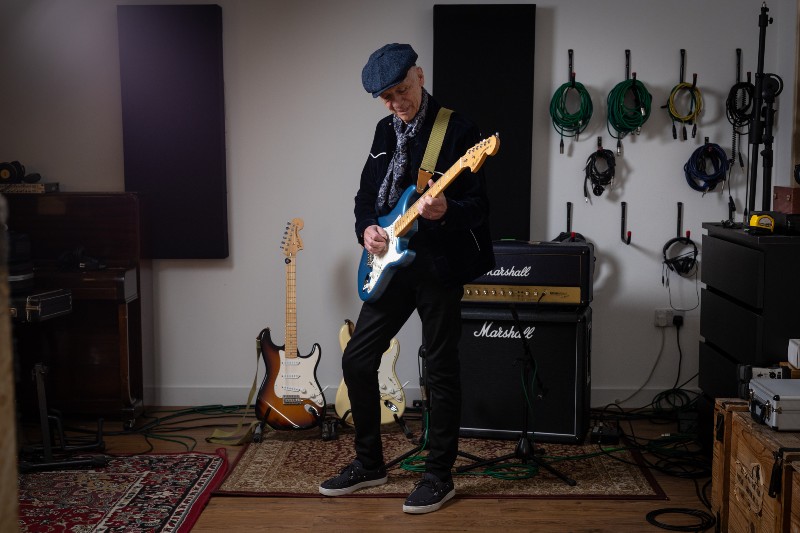
Robin: I think there’ll only be a couple off the new album. I like playing a good cross-section from through the ages, as it were. People would riot if I didn’t play the stuff off ‘Bridge of sighs’. You’ve got to put that in and then you got to make the set work. There definitely are songs that fight their way through. You know when you try them, whether they’re going to match everything else in the set. It does get whittled down quite seriously to the ones that really work well.
MGM: Some of the songs that you play live, are ones that you recorded with Jack Bruce. You obviously had a great partnership with him because you played several albums together over the years. Your first album together was in 1991, and you were still recording with him not long before he died.
Robin: He was dynamite. If you couldn’t enjoy working with him, then you must be deaf. He was an astounding musician and vocalist. We had a great time, especially making the last album, ‘Seven Moons’. That was our favourite of the three that we did together.
MGM: You’ve travelled the world many times over, taking you away from home. Being on the road creates its own sacrifices. How do you reflect back on that?
Robin: Well, here’s the thing. It’s what I do. I enjoy it. It’s really all about enjoying putting a guitar on and having a good time. As for the travelling, you make sure you get enough rest. That’s the thing, really. It’s just all about the enjoyment of doing it. If you’re not getting the energy you receive from the audience every night, I think it would start to wear a bit thin, just travelling.
MGM: Several of the many musicians that you’ve performed with over the years are no longer with us; including Jack Bruce and Gary Booker. And then you see people like Frankie Miller, who is in quite poor health. How much longer do you hope to be able to continue doing what you’re doing?
Robin: I try not to think about it. While I feel I can perform up to the mark, I’ll keep doing it. That’s the key. Your performances have got to be what you expect. If that drops off, then you know it’s time to retire. I’m just glad at 80, I’m still rocking. But you face the fact that it could finish any time.
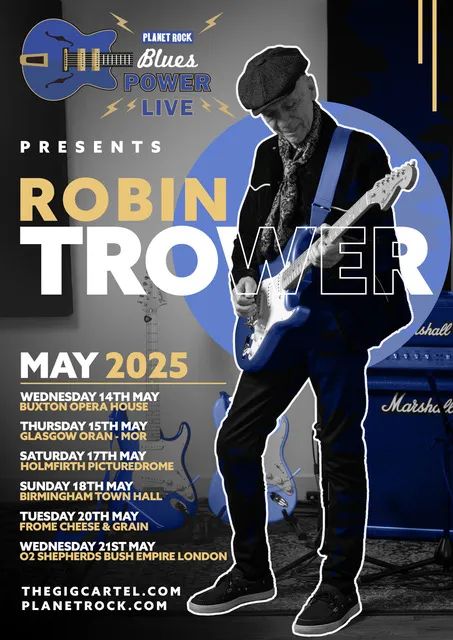
Robin will be touring across the UK and US throughout 2025:
May 18th: Birmingham Town Hall, Birmingham, UK
May 20th: Cheese and Grain, Frome, UK
May 21st: O2 Shepherds Bush Empire, London, UK
June 11th: The National, Richmond, VA
June 13th: Penn’s Peak, Jim Thorpe, PA
June 14th: Music Box at the Borgata, Atlantic City, NJ
June 15th: Keswick Theatre, Glenside, PA
June 17th: Hackensack Meridian Health Theatre, Red Bank, NJ
June 18th: The Wellmont Theater, Montclair, NJ
June 20th: The Paramount, Huntington, NY
June 21st: BARDAVON, Poughkeepsie, NY
June 2th: Tupelo Music Hall, Derry, NH
June 25th: The Wilbur, Boston, MA
June 27th: Aura, Portland, ME
June 28th: Blue Ocean Music Hall, Salisbury, MA
July 1st: Center for the Arts of Homer, Homer, NY
July 2nd: Babeville, Buffalo, NY
July 3rd: Palace Theatre Greensburg PA, Olmsted Falls, OH
July 5th: MGM Northfield Park Center Stage, Northfield, OH
July 6th: Taft Theatre, Cincinnati, OH
July 8th: Royal Oak Music Theatre, Royal Oak, MI
July 10th: Brown County Music Center, Nashville, IN
July 11th: Copernicus Center, Chicago, IL
July 12th: Pabst Theater, Milwaukee, WI
July 14th: Hoyt Sherman Place, Des Moines, IA
July 16th: Uptown Theater, Kansas City, MO
July 17th: Gillioz Theatre, Springfield, MO
July 19th: The Factory, Chesterfield, MO
For more information: www.robintrower.com
